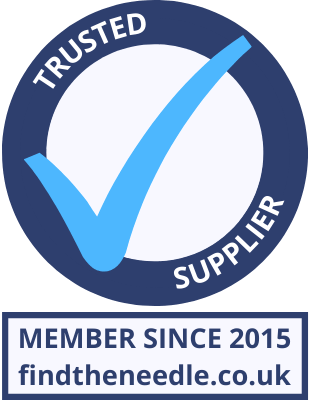 Add My Company
Add My Company
Sign In

Picking the right heavy duty castor for your application is extremely important. Perhaps the most significant factor in selecting a castor is whether it will be able to properly perform the function that you require of it. Making sure that your castor is appropriate for your needs will ensure that it provides many years of high performance without having to spend an unnecessary amount on maintenance.
In one of our recent blogs we outlined some of the qualities of heavy duty castors that make them so useful, but the castor still needs to be suitable for your industry. Here are five helpful tips to consider before buying a heavy duty castor to help you decide whether it’s right for you:
Load capacity
While heavy duty castors are by their nature sturdy – with the castors we stock having load capacities from 800kg to 10,000kg – being able to estimate the load that the castor will need to carry is critical, especially for castors carrying the bulkiest loads.
One helpful tip to ensure that your castor is safe for your application is to add 25-30% onto the estimated size of your load. You should also consider the likelihood of weight being carried on all four castors due to uneven floors, and whether shock loading (dropping material on the cart) is likely; if these scenarios are likely, you should invest in a castor with an even larger load capacity, such as twin-wheel castors.
Speed
The speed at which the heavy duty castor will be used is also a critical piece of information when making your decision. For this you should not only consider the suitability of the design and material of the castor, how loaded your cart will be and how long a castor will need to travel at a particular speed. The heavy duty castors that we stock are designed to travel at speeds of up to 4km/h. If you are ever unsure, consider a castor that can handle the heaviest load for the longest possible time.
Floor conditions
Tiled, rough or uneven flooring can pose a difficult obstacle for your castor or in the worst case scenario cause severe damage. If you work in these environments, the heavy duty castor you choose should probably be hardier, perhaps with polyurethane or heavy duty rubber tyres. You might also consider investing in castors with welted steel or cast iron centres, or castors which are spring-loaded if they need to carry a more fragile load.
Environment
Aside from floor conditions, it’s worthwhile to think about the type of environment that your castor is going to be working in, as this may have an unwanted impact on the castor and its wheel. Will this be at ambient temperatures or at more extreme higher or lower temperatures? Is there a chance that the castor is going to get wet on a regular basis? If so, it might be worth looking at a high temperature heavy duty castor or a stainless steel castor that is corrosion-resistant.
For more information on Things to Consider When Choosing Heavy Duty Castors talk to 360 Castors and Wheels
Enquire Now
List your company on FindTheNeedle.

